FRONTRUNNER Presents: Deborah Kass & Betty Tompkins
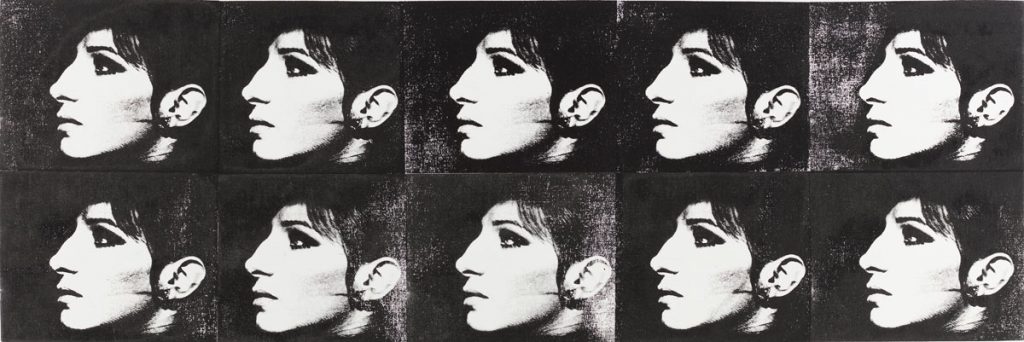
At one point or another within the last ten years, I’ve laughed, cried, gossiped and shared meals with Betty Tompkins (alongside her husband, Bill Mutter) and Deborah Kass (alongside her wife, Patricia Cronin). So it’s fair to say that both of these women mean a great deal to me. They are not only world-renowned artists who have been cruelly under-represented and under-appreciated for most of their creative lives, but they are true mentors in every sense. Their experiences and their wisdom are windows into an art world long gone – for many reasons, rightly so – and have deeply permeated their respective visual vocabularies.
Deborah Kass (b. 1952, San Antonio, TX) received her BFA in Painting at Carnegie Mellon University and attended the Whitney Museum Independent Study Program. Her works are in the permanent collections of MoMA, The Whitney Museum, The National Portrait Gallery (Washington, D.C.), The Smithsonian Institution, and The Jewish Museum (New York). She has presented work at the Venice Biennale, the Istanbul Biennale, and in 2012 was the subject of a mid-career retrospective at the Andy Warhol Museum in Pittsburgh. She is currently a Senior Critic at the Yale University MFA Painting Program. Kass is represented by Gavlak Gallery (Los Angeles/Palm Beach) and Kavi Gupta (Chicago).
Betty Tompkins (b. 1945, Washington, D.C.) received her BFA from Syracuse University, then taught at Central Washington State College (Ellensburg), where she received her graduate degree. Beginning in 1969, inspired by her first husband’s pornography collection, Tompkins began constructing a series of macro-scale paintings of genitalia and sexual acts. An early work, scheduled to show in Paris in 1974, was seized by French authorities and declared obscene material unsuitable for public display. That painting, Fuck #1 (1969), now sits in the permanent collection of the Centre Georges Pompidou, Paris. She is now considered a pioneer of postmodern feminist imagery, alongside artists such as Carolee Schneemann, Yoko Ono, Judy Chicago, and Lynda Benglis. Her work is held in the permanent collections of The Brooklyn Museum, Centre Georges Pompidou (Musée National d’Arte Moderne, Paris), the Allen Museum (Oberlin, OH) and the Museum of the City of New York. Tompkins is represented by Gavlak Gallery (Los Angeles/Palm Beach), P.P.O.W Gallery (New York), and Rodolphe Janssen (Brussels).
FRONTRUNNER brings these two leviathan artists together for the first time in a discussion ranging from art to activism, COVID-19 to institutional complacency, existential dread to slivers of hope for the future.
A distinction long, long overdue: Kass and Tompkins command the cover feature of FRONTRUNNER’s Fall 2020 First Anniversary Issue.

Fuck Painting #1 (1969)
Acrylic on canvas
84″ x 60″
Courtesy of the artist
Collection of the Musée National d’Art Moderne, Centre Pompidou (Paris)
So here we are, living in a very precarious time. We’re in the midst of a global pandemic, which hasn’t spared anyone. First question, then, from the both of you: how are you feeling?
Betty: We’ve been quarantining in Pennsylvania, where we both have very fully-stocked studios. When you look out the window, it’s beautiful. The weather has been good. So our lives are 90 percent normal. Get up in the morning and, “What am I gonna do today?” It turns out I hadn’t balanced my checking account in almost two years, so that’s been my project for yesterday and today. I am working when I’m not discovering these ginormous lapses in my “normal” life. I feel really distracted by the news, I feel like I can’t miss a minute of it. I say to myself, “From this time to this time, I’m going to work at this.” Even if I fuck it up and I’m a half-hour late, I get to it. Everything that I had coming up has been delayed a year; I don’t feel the force and drive that I normally do. Give me a deadline, and the rest of the world can go fuck itself. I have deadlines, now, that are so far away, I could do three shows in the middle.
This is really a good time to play around. I don’t paint to succeed at the painting, I paint to try and get into an area that’s really dangerous for me, whether it’s technically or some other aspect. I have three or four series going, and where they’re going at this point, I really have no idea.
Deb: Well, we’ve been also out of town for six months. I started going back after lockdown was lifted a little bit because I have a show coming up in September that is not postponed in Chicago, at Kavi Gupta. Luckily, all the work was done by the time we went into shutdown in March.
Betty: I’m like that too, Deb. I always like to have a show, or a show-and-a-half sitting around. I don’t like pressure.
Deb: This work – I’ve been terrified since November 9th, 2016. My complete psyche and work schedule and habits have been turned upside down. I was working super-super slowly, picking away, listening to MSNBC twenty four hours a day (including my studio). Lo and behold, I had made enough work for a show. Instead of a year-and-a-half, it took three. My priorities really shifted after the election. I’m really happy with the work, but it’s very nervous-making work.
The show was done, but a lot of it was at the fabricator getting neon installed on it. In May, when New York locked down, they brought all the work back to my studio – it was the first time I had seen so many people in a small space: my assistant and three people from Lite Brite Neon. I was the last person they saw before they shut down, and they gave me work that they had finished and wanted to see it. They said, “You were the last person we saw, and now you’re the first person we’re going to see.” So, I got all the work back in May, then I was going in a couple of nights a week to do some packing and shipping. Now I’m having a show on Labor Day with no opening, in locked-down Chicago. I have zero expectations. I have no idea what to think. I didn’t even consider pulling it because I didn’t focus on it enough to consider pulling it! [Laughs] Because I am so distracted, like Betty, with the news. Except, I indulge my distraction. 24/7.
Betty: I don’t listen to the news unless it’s a video, so I see all these clips all day long. Then I say, “No, you have to work for an hour.”

VOTE HILLARY (2016)
Silkscreen on Stonehenge 320 gram paper
42″ x 42″
Courtesy of the artist and GAVLAK (Los Angeles/Palm Beach)
Deb: Well, I stream MSNBC, so I don’t watch it. We [Patty] and I have adjoining studios, so we both stream it on our individual computers. But basically we’ve been out of town and not in the studio. So we’re at the beach. It’s a tiny place, but perfectly fine. Watching the news. All the time. And full of unbelievable anxiety. If I’m not watching, I’m reading Malcolm Nance, or Timothy Snyder, or Jennifer Palmieri, or Norm Eisen; I’m reading all the people I watch on TV. Or Mary Trump. Or the biography of Frederick Douglass. And to even start reading was a real accomplishment for me. I had been too distracted to read. But it’s awful. It’s terrible. It [the 2020 election is] gonna get stolen. I’m completely freaked out and I’m ready to move to Ireland.
You answered my question, in advance. I was going to ask if you have a modicum on hope for what’s going to happen. People directing their anger in exactly the wrong place, here in Britain, with the Conservatives’ handling of the pandemic and Brexit. People should have been throwing stones at Nigel Farage, when they ended up throwing stones at protestors.
Deb: I have no doubt Joe Biden is going to win. I have no doubt Hillary Clinton won. The question is, what’s Russia going to do and how are they going to do it?
Betty: Well put. We’re all very worried. He [Trump] keeps saying that the first election was so fucked up that when he wins re-election, he’s going to go for a third [term]. When he says things like that, he’s testing the water to see what lies will float.
Deb: You really have to wonder what drugs he’s on, exactly, to keep him going. It’s Adderall. He snorts Adderall. And coke. It’s terrifying. I’m terrified. We will really seriously consider leaving, if he steals it.
All of these nightmares are valid to consider. If and (knock on wood) when Joe Biden wins this election decisively, I think Trump will just tire. He’ll be like, “Fuck it. I just don’t care anymore. All of this was just to placate these people I don’t give a shit about. I’m just gonna go play golf.”
Deb: He can’t. He can’t. He’s a criminal who is guilty of so many crimes, and he’s so going to jail that he cannot give up power.
Betty: Right. And even if he gets Pence to pardon him before the election, he’s still being prosecuted by New York State.
Deb: Which is why he’s not going to give up power, he’s just going to keep taking more drugs until he drops dead. But he should drop dead, really.
My mom always said the same thing, and I had always countered with, “No! Don’t make him a martyr.” Maybe she was right.
Betty: I don’t care if he’s a martyr as long as he’s a dead one.
Deb: Right. I’m with you.
Well, politics now does infiltrate everything, and the way we operate. But it’s people like you and Betty: artists and great creators are much harder to erase from the public lexicon.
Deb: I mean, it’s pretty easy for women.
Betty: If you have breasts, it’s as easy as anything. This is why there’s now this market niche of older women, who aren’t discovered until they’re old. A moment in the sun before they croak.
Deb: Betty, do you know the story about Cézanne and the lunch Pissarro threw for him when he was in his 90s?
Betty: No, tell me.
Deb: Oh, it’s fabulous. Pissarro throws this lunch with all these painters who really respect Cézanne – after a life of being ignored by the art world. Cézanne got really freaked out at the lunch because he was convinced that they were just making fun of him. He got up and said, “You’re just making fun of me,” and he stormed out.
I always say, “I’m gonna do what Cézanne did.” I’ll say, “Fuck you!” And I’ll storm out. But the young artists won’t be making fun of us.
Betty: If it weren’t for the young artists, no one would know about me, at all. They came in and got me press and were supportive, they gave me opportunities to talk about my work. It started about seventeen years ago (my entire career is seventeen years old), and I was teaching adult education. They were raised differently than we were. They were raised to cooperate with each other. To make opportunities for each other.
Deb: But who were the people in your generation that were raised differently?
Betty: Seventeen years ago, these were people in their early thirties. I was doing an art camp thing in New Hampshire one week a year. I was always the oldest one. There were those in their thirties who would go into the kitchen to get a beer, they would see a bunch of empty glasses, clean them, and come back in and get you a beer.
Deb: They were raised by people like you.
Betty: YES! Although I was fortunate enough not to raise anyone! [Laughs] It was the exact opposite of my generation the way we were raised to think about competition. I once did an interview with Marilyn Minter, and she asked me, “Betty, who were your mentors? You never talk about your mentors.” I looked at her and said, “The silence you’re hearing is because there weren’t any.”
Deb: Did Marilyn have mentors?
Betty: That I don’t know off the top of my head. I met her when she was first doing collaborative pieces with Christof Kohlhofer. People were coming over to her, much more established than she, to see what she was doing. I was just as happy being alone.

Black and Blue #1 (2015)
Acrylic and neon on canvas
72″ x 72″
Courtesy of the artist and GAVLAK (Los Angeles/Palm Beach)
For both of you: when did you first become aware of one another?
Betty: Deb, I believe we’ve only met in person a couple of times? Probably, in passing? But I’ve known your work for decades. I was surprised of how many iterations back [that] I knew your work.
Deb: As my wife Patty says, “Painters know painters.” Even if you don’t know them, you know the work.
Betty: Soho was the arts district, I used to live there. I still live there! I started on Spring Street, and then I moved a block north.
Deb: You could.
Betty: Yes. It was easy, you know? You have to go to the store for eggs, you see ten galleries along the way.
How about you, Deb. When did you first see Betty’s work?
Deb: I really can’t remember, I feel like I’ve always known her work. I would guess, Betty, from your Renaissance on, I know your work. Seventeen years ago.
Betty: Yes. By that point, I was experimenting with language because I got so throughly discouraged from the response to the Fuck Paintings.
Deb: Your show with Mitchell [Algus]?
Betty: My first show with him was in 2002 or 2003.
Deb: Just so you know, I went to high school with Mitchell. I never missed what Mitchell did ‘cause we were pals.
I discovered both of your practices around the same time I was living in Miami in 2010. And Deb, I saw your work in person for the first time when I wrote about your Double Yentl piece at PAMM. I’d love it for all of us to talk about Barbra Streisand for a bit.
Deb: I’ve talked about this a thousand times. Let Betty start.
Betty: From the beginning, when I saw your pieces, I thought they were absolutely perfect. It was such a perfect matchup.
Are you referring to the Jewish Jackie grid, or the Double Yentl, or both?
Deb: If you saw one, you saw the other. That work was in ’92.
When I wrote about Deb’s work before, it was through the lens of me being a Jewish woman, and having known about Yentl being a move that my mother loved. A movie talked about in an almost taboo way in my house. Both of your practices touched on taboos that I wanted to explore further as a writer. But your respective practices seemed so natural and integral to who you are as people. Was that developed over time?
Betty: Of course. You’re not going to find any 19 year-old like that. You become who you want to become. Things that you admire about yourself are things that you bring attention to, yourself.
Deb: But bringing it back to Barbra, Betty. What was so remarkable about her as a 19 year-old, and a 20 year-old, and a 22 year-old who took Broadway by storm was that she was fully in control and cognisant of the power of her difference. Decades before that was a concept that anybody thought about. As an adolescent looking at this girl being so sure of her power, and so right in her talent, so clear about her place in the world, was absolutely inspiring. You just didn’t see women like that. Even 20 year-olds. It was so exciting. Seeing such a young woman being so centered in herself and her difference and her glamour, it was a revelation. Her self-regard was radical.
Betty: I went to an all-girls high school in Philadelphia. Though ambition was encouraged, a bit, you couldn’t show it too much. When I was in college and I was about to marry one of my teachers and move to the West Coast for graduate school, one of my painting teachers asked me, “What are you going to do?” I said, “I’m going to move to New York and become an artist.” He looked at me and said, “The only way you’re going to make it in New York is on your back.” I made a painting outta that one.

Double Yentl (My Elvis) (1997)
Silkscreen and acrylic on canvas
72″ x 50″
Courtesy of the artist and GAVLAK (Los Angeles/Palm Beach)
Deb: Betty and I are far enough apart in age (which is not that far). If you lived through the 60s, my brother is three years older than me – Betty, you’re 75, I’m 68 – even my brother grew up in a different generation than me. I was sixteen in 1968. I was in a suburb of New York, completely aware of the outside world, very politically active. I was very busy closing my high school down for a Vietnam moratorium, for the day Martin Luther King, Jr. was shot, when Bobby [Kennedy] was shot. I was a sixteen year-old activist before I knew what that was. That was a result of the time. My brother grew up as if he was in the 1950s. I was formed by the 60s. And I want to say, when those Parkland kids came out after the high school shooting, I said to Patty, “I don’t think there’s been another generation that will be as formed by politics and existential dread and activism since my generation.” Their lives will be formed by their experience as gun activists. This will define them the way Vietnam defined my generation. I don’t think there’s been a generation in between. I think these kids are gonna change the world.
Betty: I hope so. My generation grew up with the atomic bomb. And boy, did we have existential dread. J. Edgar Hoover was head of the FBI. I grew up with his guys following me to school.
Deb: Why?
Betty: My parents were in left-wing politics, and the first thing the FBI did in those days was go after the kids.
Deb: Wow.
Betty: When I was in third of fourth grade, my school (which was in Strawberry Mansion in Philadelphia), it was a full square block. The FBI were following me to school, they were very predictable. There was a kid in my class, a good thirty pounds heavier than the rest of us, and he was a really bully. He would go up to somebody during morning recess and say, “I’m gonna beat the shit outta you after school.” One day, he said it to me. The idea was you’d be quaking in your shoes for the rest of the school day. When the day was over, I went out into the yard, he was there with his buddies. I said, “Before you beat the shit outta me, I have something that you should be aware of. The FBI considers me a very important person. I’ll prove it to you.” I went out of the gate and saw their car, I knew the cars and knew the guys. I walked around the schoolyard, and as soon as I was five feet from the gate, that car started to follow me. I went back into the schoolyard and said, “Whaddaya think?” And he fled!
Deb: Cool.
Betty: I was the only third-grader who didn’t get the shit kicked out of them! I was very proud of who I was as a little girl.
Deb: You should be.
In your years as a teenage activist, Deb, did you ever get scraped up?
Deb: Darling, not in my high school in Long Island.
[Both laugh]

Cunt Painting 23 (2015)
Acrylic on canvas
24″ x 24″
Courtesy of the artist and GAVLAK (Los Angeles/Palm Beach)
When I started with FRONTRUNNER, I had just arrived in England – Betty, I had dinner at your place on Prince Street the night before with you and Bill. A week later, after a random internet search, I found FRONTRUNNER Magazine. My publisher said, “Yeah, I’ll pay you to write.” Two years later, I became Editor. What were some things that you developed in the core of your practice that you’d want younger artists to know?
Deb: That’s a really great question. The people you think are the least likely to get anywhere are exactly the people who are likely going to go somewhere, fast and first. It’s really bad sportsmanship to be an asshole to other artists.
Betty: Rah, rah.
Deb: The other thing, or rather the first thing is, you really have to protect yourself. You have to stay away from negative people, particularly the ones who call themselves “your friends.” For me, that was the most destructive thing. Of course, these were men. That was 30-40 years ago when they were simply not taking their friends, who happened to be female, seriously. They were a product of their time. The fact is, you really have to avoid negative friends and get rid of them. It’s a matter of psychic survival. They’re not just men. It’s one thing to have constructive criticism in your life, you really need it, but from people you trust, though. They need to deliver the constructive criticism. You have to surround yourself with people who really support your ideas, which is really who you are. People who support your work, who see your potential maybe before you do, those are the people you need in your life. You have to be sure it’s coming from the right place and the right people.
To be more selective, you mean.
Deb: Yeah, I mean, maybe it’s also how I was brought up. Just gotta stay away from negative people. But don’t confuse negative people with criticism from the people who love you. People do confuse them. Sarah Schulman has a very important book called Conflict Is Not Abuse. Just because you go head-to-head with someone you love doesn’t mean you dump them. That’s not what I’m talking about. I’m talking about more insidious, more ambivalent kinds of relationships.
Or ones that disguise themselves as relationships.
Deb: Correct. You get what I’m saying.
Betty, we’ve talked before about being able to deflect negativity easily as a young artist. Being able to absorb critique, but repel negativity. What’s something else you’d want a young artist to know?
Betty: What I would add is that you have to have an absolute belief in yourself and in what you’re doing. If you don’t, then it’s the wrong thing for you to do. To me, the one thing that I wish somebody had told me when I was 24 and first moved to New York is: believe in what you’re doing. I did, even though I was being rejected right and left by everybody.
But I wouldn’t still do what I do, or any side interests I developed along the way, if I didn’t have this absolute belief in myself. I have felt that way whether anybody else believed in me, or not. That’s the center. Nobody can chip away at it. People who are successful in chipping away at it are people I don’t want to be around. It’s too dangerous.
I haven’t heard artists talk a lot about this. But, as a magazine, we need to navigate how we best represent artists and their voices. Do you suppose there’s something that you can pinpoint that you’d like to see a magazine do more of as an editorial body?
Deb: Yeah, but I’m probably not a good person to ask about that because I don’t really read the art magazines anymore. I just don’t. If anything, I’d read The [Brooklyn] Rail. I just don’t care. What the election has done is that it’s removed the wheat from the shaft – there’s very little, in particular, in the art world that interests me, anymore.
That’s a fair point. That’s still you.
Betty: I read some things, mostly I read online. What I have to say about this is…COME UP WITH GOOD QUESTIONS! It’s really boring to be asked the same seven questions. I understand that each new publication has to introduce the artist to their particular audience. That’s what prompts it. But at a certain point, don’t ask me silly questions, just write an introductory paragraph! Then move on areas where the artist has not been asked 123 times about one thing or another! Come up with questions that the artist has to work at.
Deb: But to Betty and Shana: this is really smart, Betty.
Betty: Thank you!
Deb: The other thing I’ll say directly about that is why I don’t read them anymore is because it seems to me that – I’ve done a million interviews about this and that. Nobody does the research, they want you to answer their questions and see if you’ve answered them before. They haven’t done the research. The reason that happens is that they simply haven’t read what you’ve done before. They have not done the work.
Betty: They take up my time.
Deb: Amen.
Betty: Right. I ended an interview once where I could tell after the first couple of questions that this person had not read one interview or article about me. I said, “Go back and do some research. Be glad to speak to you after that.”
Deb: I have also had that experience. That’s what I said to you earlier about Barbra [laughs], and I know you’ve done the research. You already know. You send someone out for an interview, you’d better know your stuff. We’re too busy. That’s not our job to educate an interviewer.

Fuck Painting 49 (2013)
Acrylic on canvas
72″ x 72″
Courtesy of the artist and GAVLAK (Los Angeles/Palm Beach)
Betty: I get people saying, “I’m a PhD student at XYZ University, do you mind if I ask you some questions?” I always write back saying, “Yes, I do.” Do your research.
[Both laugh]
Deb: I say, “Go to my website, there’s 8,000 articles and that’s not the half of it.”
Betty: There you go.
Deb: They’re there. Go read my interview with Irving Sander from 19- whatever. Just fuckin’ read the articles! Just Google me.
Betty: Maybe it’s because I’m 75 – Aaah! – but I can’t believe someone can walk into a stranger’s life and take up a ton of hours, when it’s [already] out there. I know it’s out there. I know what’s not out there. When I see a nice question, I go, “Ooh, it’s a good one! I’m gonna actually have to use my brain!”
Deb: Betty, you’re funny. You’re right on.
Next question has to do with why I brought up Barbara earlier, which has to do with a work of Betty’s. Betty will laugh – do you suppose Barbara Streisand is one of the first “Alpha Girls”?
Betty: Shana owns a Women Words painting that says “Alpha Girl”!
Deb: Can you define “Alpha Girl” for me?
When I look at the work “Alpha Girl”, I was thinking of Betty (as an artist) and Barbara Streisand, in this context. As you succinctly put it before, someone who utilised her Jewish heritage very openly as a part of her persona. Within the roles she inhabited and performed, she was in possession of her own power. In a way, and I’m saying this for the first time in my life, it reminded me of me!
Deb: There you go.
Betty: It was perfect for you. The best one you could have picked.
So go on, Deb.
Deb: I love that, this is so cute. Is Barbara my first Alpha Girl? I’ll just say this, as an Alpha Girl. I think a lot of what is important in the world and getting into the world, understanding and digesting the world when you’re a kid is identification. It’s an extremely active thing. It’s a verb. Whereas identity is a noun. You’re kind of born into an identity: you’re a woman, you’re Jewish, you’re an artist, whatever. Identification is how you figure out who you are. Barbara, of course, as the ultimate Alpha signifying to all of us baby Alphas, could not have been more significant.
This girl got a CBS three-special deal when she was twenty one or two, in which she had total creative control. The first one got an Emmy, she got a Grammy for the record. The woman was a genius. Another Evening with Harry Stoones (1960) was her first off-Broadway show. So by the time she was in I Can Get It For You Wholesale (1962), she was ready for an Emmy, her Tony, everything else. I’ve read practically every book on her. She knew exactly who she was, and how to play the “kook” (it was an act). Her first boyfriend (who, of course, became gay) was her first big supporter and they crafted this persona for her. She opened up for Woody Allen at The Vanguard, she was on Merv Griffin, she was on Gary Moore, she was doing cross-country gigs. There was no fear, it was creativity.
Could you identify one thing that gives you both hope in the creative world?
Betty: I think that people are volunteers in the art world, no matter which side. Dealer, curator, collector, critic, artist. We all have a reason in what we’re doing. You can’t keep doing it if you don’t have hope. You can’t do the work if you feel hopeless.
Deb: I’m going to give you another answer. The thing that gives me hope at the moment is the reckoning in museums. It’s overdue. But these twenty-something kids are the only ones going into these jobs.
Betty: They’re the only ones who can afford the salary.
Deb: Correct! Thank you, Betty. But, the reckoning that they’re demanding that comes out of their entitlement and based on the work that people like me and Betty have been doing for decades, they are where they are because of people like us, thinkers like us. We invented it, but it’s been institutionalised to the point that we have an entire cohort of twenty-somethings in museums saying, “Oh no you don’t!” Demanding equity. They are demanding an end to the racism and sexism that has been completely systemic in these institutions for decades, and Betty and I have lived it. They’re continuing our work in this particular way. Unfortunately, most people getting called to the carpet on this seem to be women, or most people paying the price seem to be women directors and curators. But more men need to be held into account in positions of power. You got the point.
Betty: It’s also younger women that are calling out male directors – the MeToo Movement continues into another wave. I got a lot of new Apologias on hand.
Deb: But I don’t believe them. Until these men are replaced, I have a problem.
Betty: We see from the first wave that these guys are weaselling their way back in.
Deb: Of course. They move laterally, or they bail out. But Shana, most of the people taking the fall for this in institutions are women. The class of people who populate these institutions, and galleries also, these “forever interns”. They’re not me. I waited tables. Betty, I worked at Broome Street Bar, forever. That kept me going for years.
Betty: I typed letters for the UniRoyal tire company. In their complaint department. It was incredibly educational. My first husband thought he was an expert at writing letters to complaint departments, and he was doing it all wrong.
Deb: Jesus, I had the Glamour job.
Betty: Yep, I also worked as a stylist for years.
Last question: can you both name one thing in the past five years that has enriched your life the most?
Betty: Breathing. My goal is every morning when I wake up, to still be alive before I go to sleep. I’ve had our house here in Pennsylvania for almost twenty years and I consider it a life-saver. It’s 48 and a half acres, so I don’t particularly have neighbors.
Deb: I’m with you. During this pandemic, I said to Patty, “Now our job is to do one thing: to stay alive.” Six years ago, we bought a bungalow at the beach. That’s really enhanced our lives. On top of being five houses from the ocean and having the most glorious sunsets in the world, that has been the great addition to our lives, without question.
Very, very last question, what is your rallying cry for 2020?
Betty: Survive.
Deb: Vote.

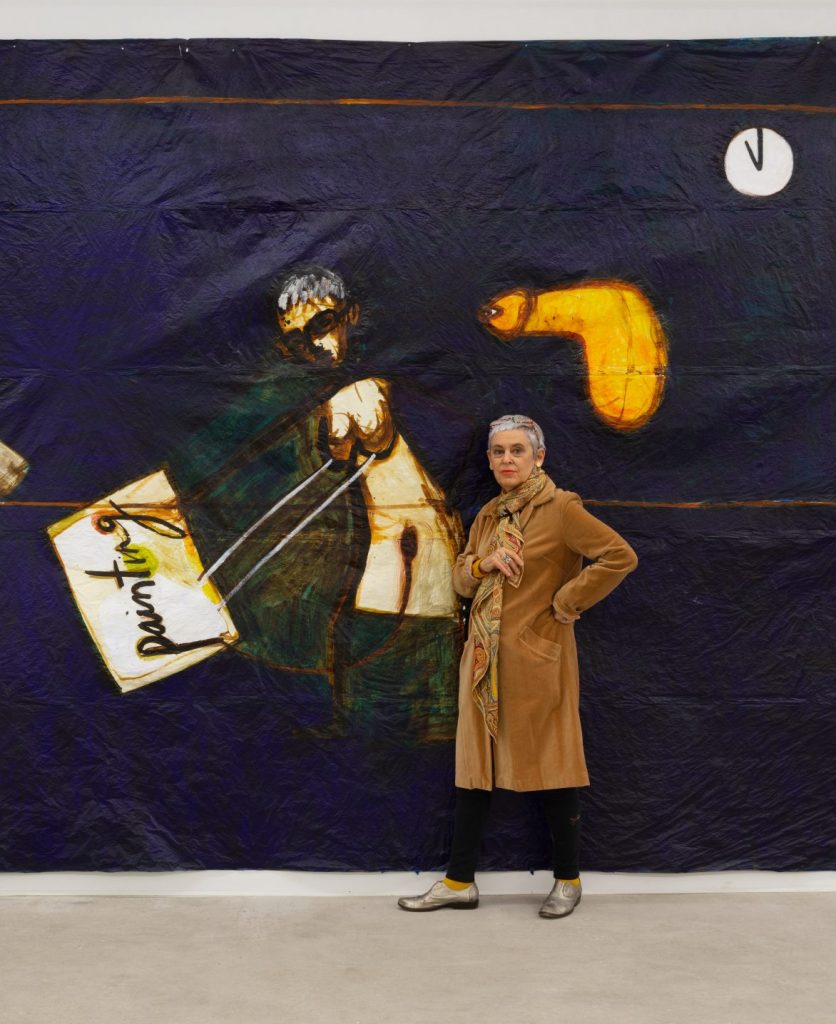
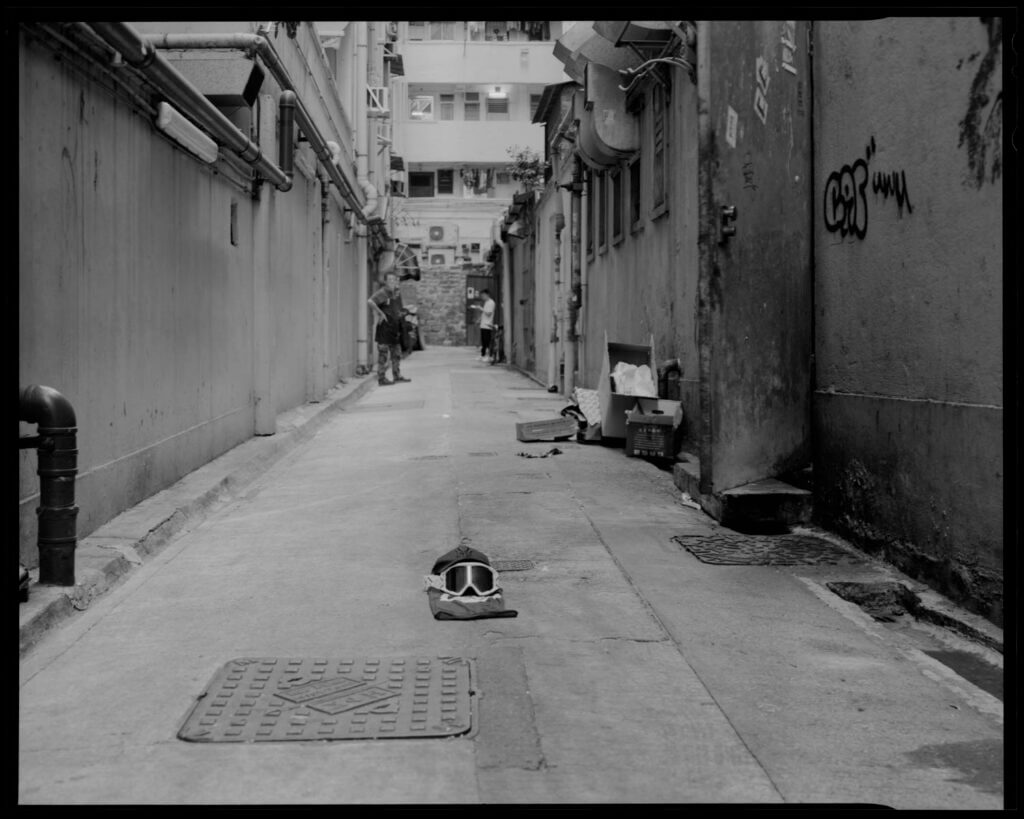
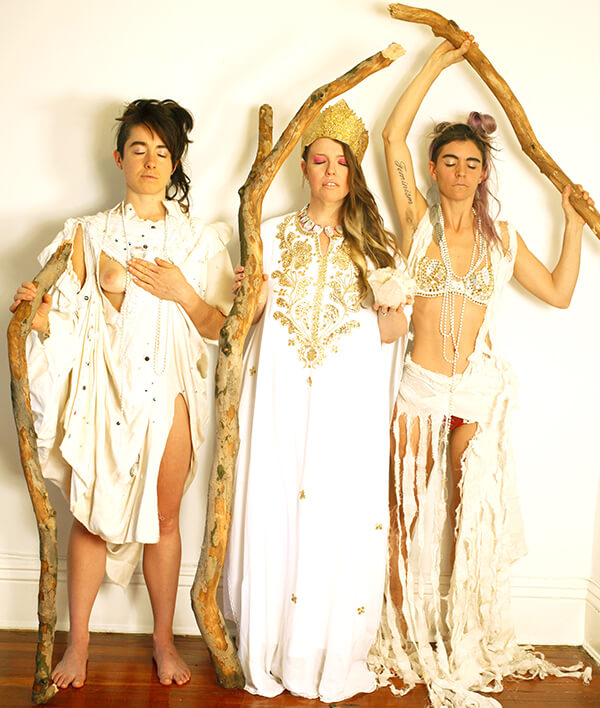
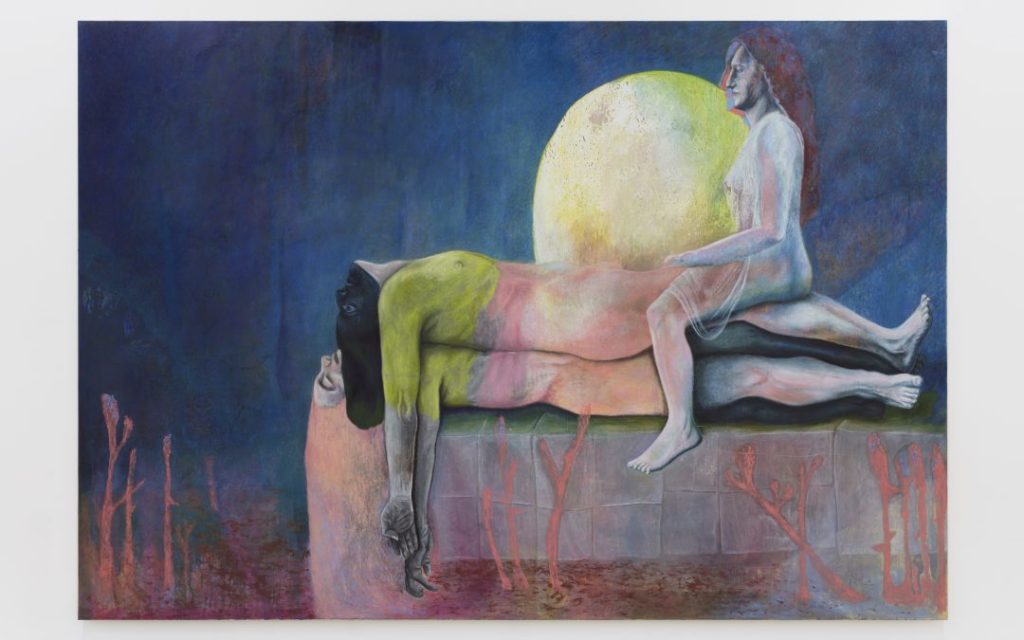
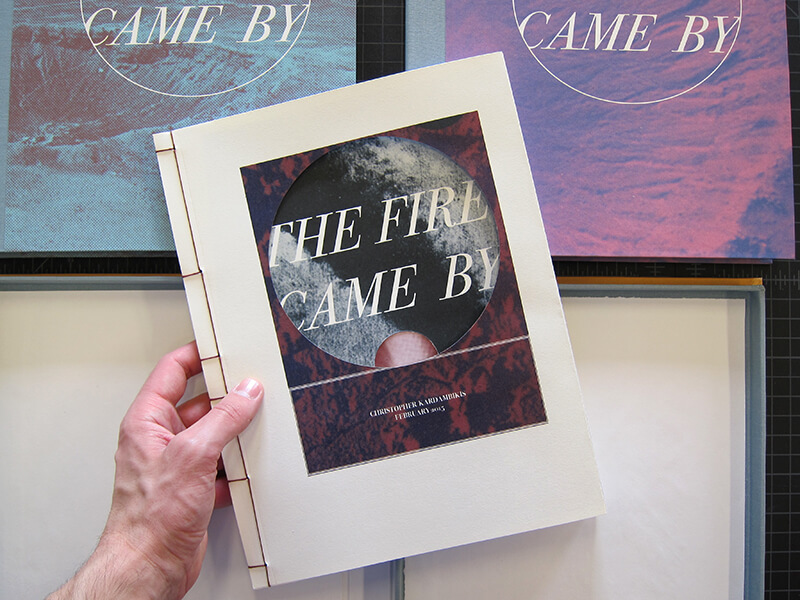

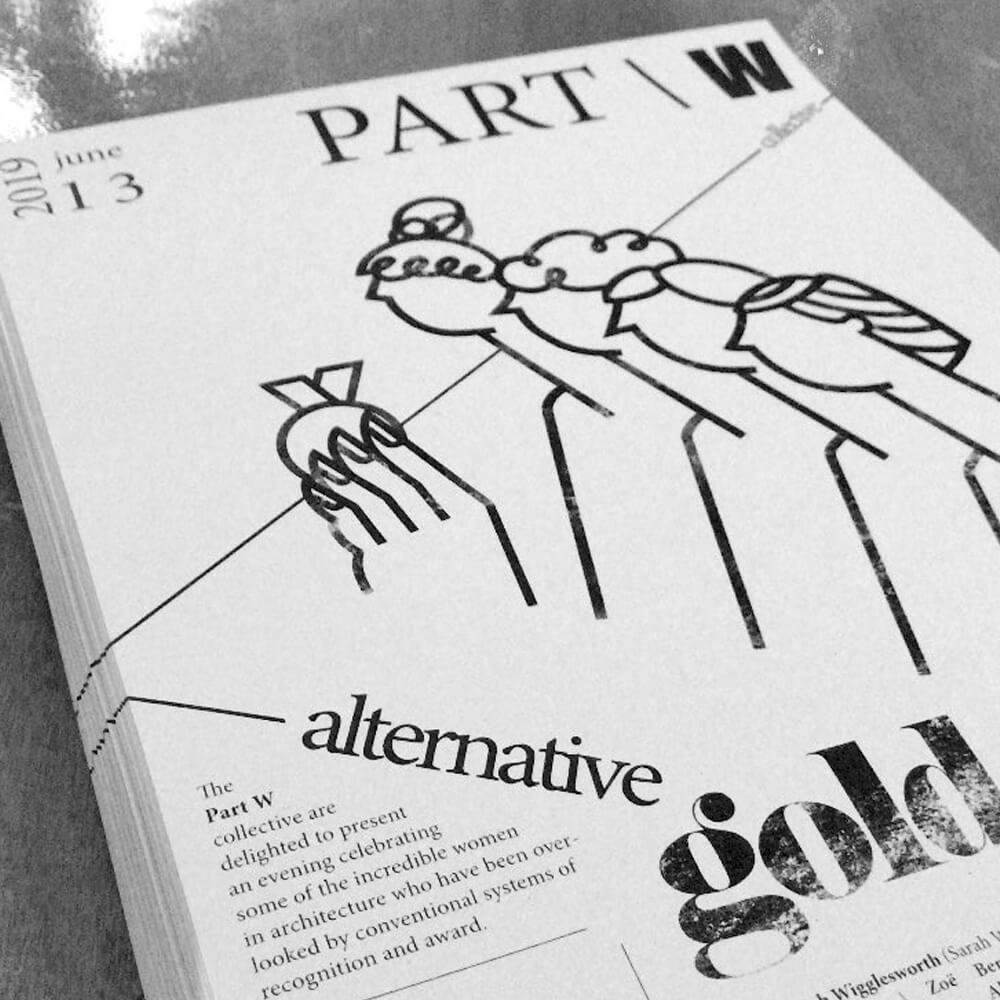

Responses